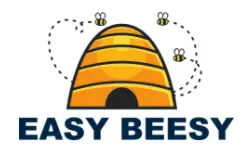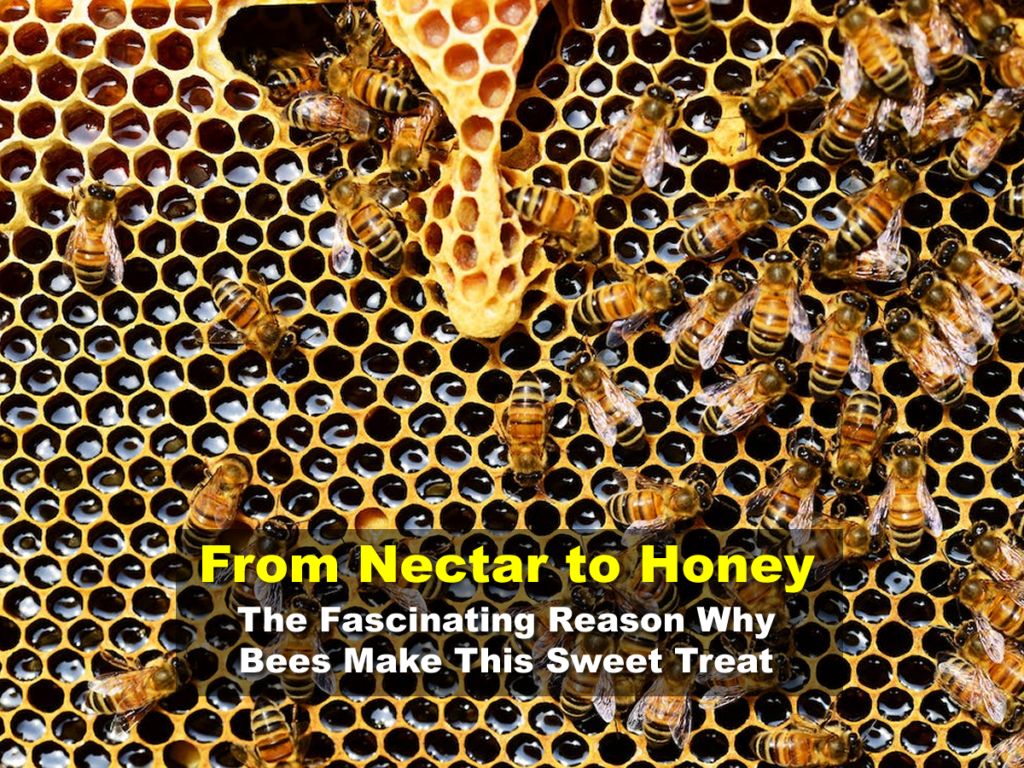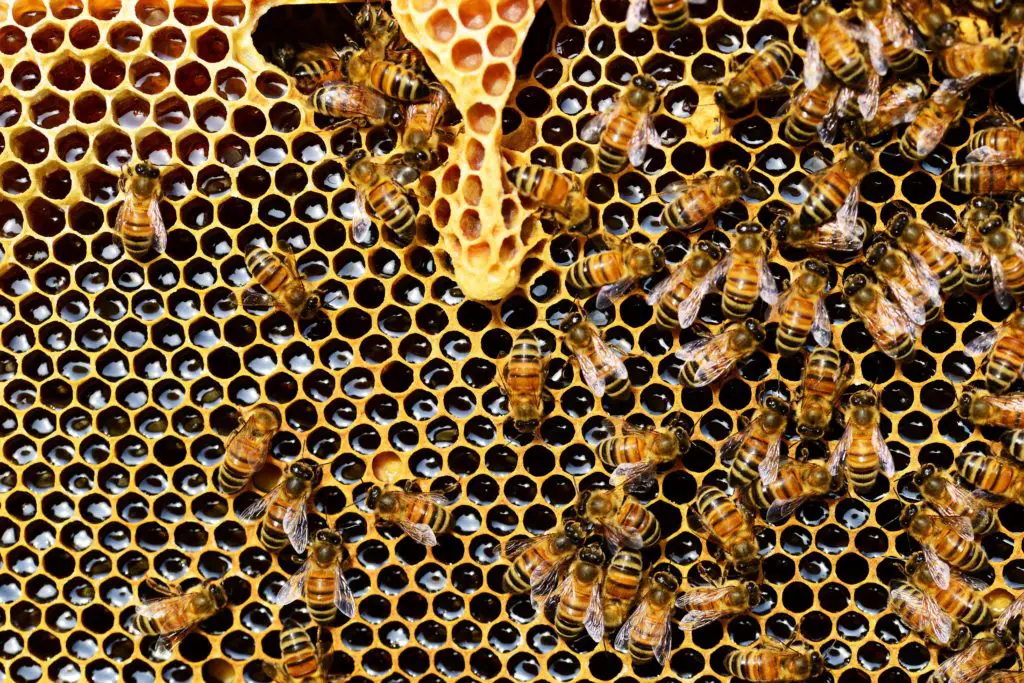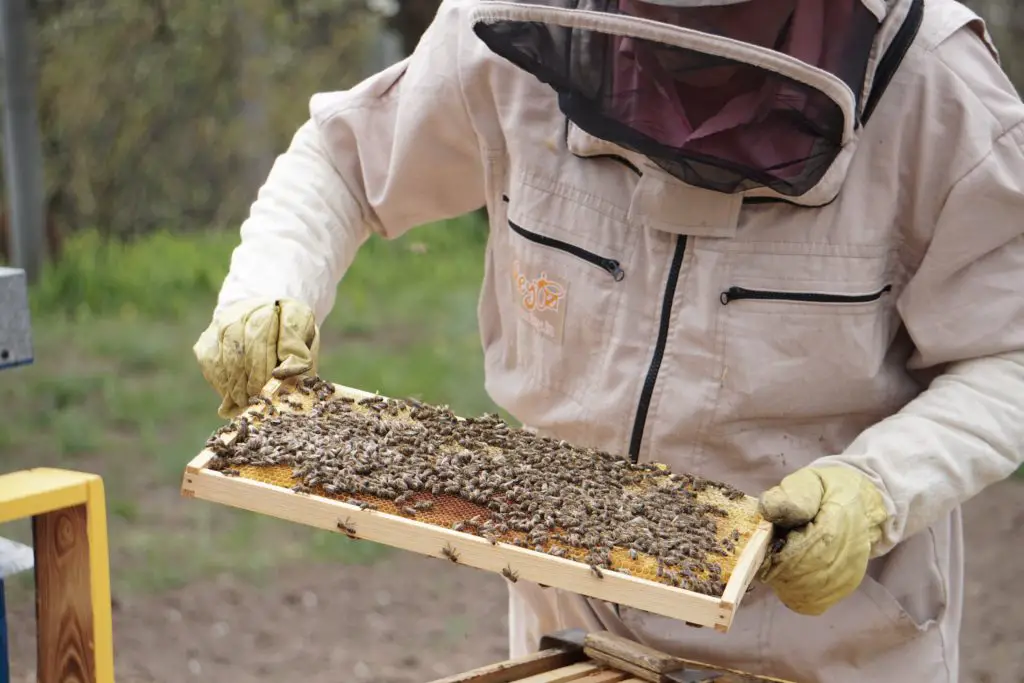Affiliate Disclaimer - As an Amazon Associate I earn from qualifying purchases.
It supports the website. So, Thank you
Do you love to drizzle honey over your cereal or perhaps use it to sweeten a cup of herbal tea? It’s certainly earned its spot in the food cupboards of humans over the years and there’s evidence that humans have been enjoying this sweet substance for thousands of years. Honey is made by bees and I’m pretty sure they’re not going to do all that hard work just for our benefit so why do bees make honey?
The main reason that bees make honey is for food. Bees will store honey in the cells of the honeycomb within the hive and use this to sustain the colony over winter. It’s also mixed with pollen to make what is known as bee bread as a food source for the young bees.
Table of Contents
What Do Bees Get From Honey?
Honey is a substance that is high in natural sugars as well as things like carbohydrates. These are the main benefits that bees get from honey and it’s the pollen that gives them their required protein intake.
Because honey is high in sugar, this gives the bees a much-needed energy boost. Since there can be tens of thousands of bees in an established colony, it’s really important that they have enough honey to see them through the winter.
What Else Do Bees Eat?
Honey is typically stored in the honeycomb so that the bees have a source of food during the winter months. But this isn’t the only thing that they’ll feed on. In fact, when you see bees going around collecting nectar and pollen, the chances are that they’re also chowing down on these things.
Pollen has a powder-like consistency and can come in a variety of colors, depending on the plant. Bees have pollen baskets on their legs which they use to collect pollen but it also sticks to their hairy bodies. While they do transfer pollen between flowers for pollination, they’ll also use it back at the hive by packing it into cells as a food source.
Bees can also be seen eating, or drinking, nectar. This is a sweet liquid that is high in sugars and is produced by flowering plants. Honeybees have straw-like tongues that they use to suck up the nectar and then store it in little pouches known as honey stomachs.
However, they are able to take in some of this nectar through a valve in the pouch and this gives them the energy they need to go from flower to flower.
How Do Bees Make Honey?
I have written a full guide on how bees make honey which you can read here. However, if you’re in a hurry, let’s take a brief look at what these creatures go through to make their food.
For starters, the worker bees will head out to forage for nectar which they do by flying from flower to flower. A single bee can carry almost its own body weight in nectar and once it’s fully loaded, it’ll head back to the hive where it gives the nectar to a house bee.
House bees partially digest the nectar, breaking down the sugars into more simple versions.
Once this process is complete, the resulting product is then packed into the honeycomb. Now the bees must vigorously flap their wings to create dry air that removes all moisture from the honey and ripens it. After this, the bees will cap the individual cells to ensure that no moisture or air gets into them.
It’s now merely a case of leaving the capped combs alone until the bees need to come back and use the honey over the winter.
Can Bees Survive Without Honey?
Without honey, bee colonies would have an extremely difficult time surviving over the winter. You see, these little creatures are not able to fly as easily in the cold so they’ll enter into a state of dormancy and remain inside the hive to keep warm.
It’s the honey stores that they have built up over the spring and summer that they’ll use as food during the colder months.
For beekeepers, this means being very careful about how much honey is harvested from a single hive. Taking too much could be that there isn’t enough left for the bees and this could be detrimental to their survival.
When a hive is young, typically in the first year, beekeepers often cannot take any honey as the colony won’t have had a chance to produce enough for themselves, let alone their human carers. In these cases, it’s important to offer alternatives like sugar water to sustain the colony until spring rolls back around.
Final Thoughts
We all know that bees make honey but do you know why bees make honey? They use honey as a food source during winter when it’s no longer possible to forage or leave the hive. Honey is used to feed both adult bees and their young and with sometimes more than 10,000 bees in a colony, it’s no wonder that beekeepers have to be careful how much honey they take for themselves!




